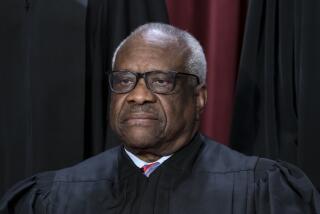Broaden Use of Ethics
- Share via
Earl F. Cheit makes some good comments about how and how not to bring about the desired ethical turnabout at General Dynamics (“General Dynamics: A Laboratory for Ethics,” Dec. 29, 1985).
He warns against reliance on codes of ethics, suggests that ethical behavior has to be learned, asks that every decision be examined for its ethical ramifications and stresses the need of leading by example.
I assume that most managers at General Dynamics started out as your typical, strait-laced engineer. They do not have to be taught personal moral autonomy. They do not need codes of ethics to make them honest, but by pointing to such codes they can better resist the pressures of others who would have them commit unethical acts.
So I would ascribe more usefulness to codes than Cheit is willing to--despite their inevitable overuse as ploys to “leave us alone” and for publicity.
Cheit is quite right when he says that concern with ethics has to go beyond the obvious issues of fraud and deceit.
Indeed, we may say that ethics ought to weigh more heavily in the product that an engineer is willing to work on or that a firm is willing to champion.
Is the fabric of our society strengthened by relying so heavily on military force? By diverting huge sums to armaments? By selling arms abroad, and most of them to Third World countries? Would those involved in the manufacture of the weapons be willing to personally aim them at human beings and pull the trigger?
While different folks will have different answers, none should be taken seriously unless they have been thought through for all their ethical implications. If Stanley C. Pace, as the new chief executive of General Dynamics, is to lead by example, he must not only set the tone for the business ethos but must also encourage clear thinking about the end uses and final destinations of the firm’s products.
ROLAND SCHINZINGER
Professor of Electrical Engineering
University of California, Irvine
More to Read
Inside the business of entertainment
The Wide Shot brings you news, analysis and insights on everything from streaming wars to production — and what it all means for the future.
You may occasionally receive promotional content from the Los Angeles Times.










